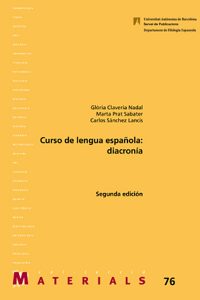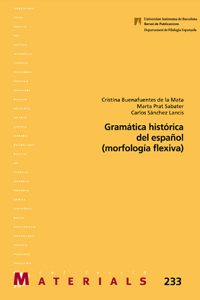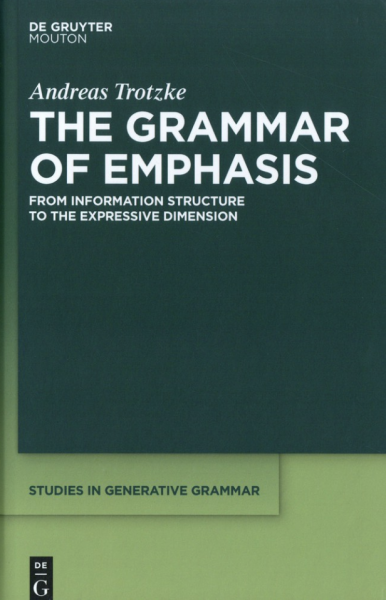10 juny, 2020
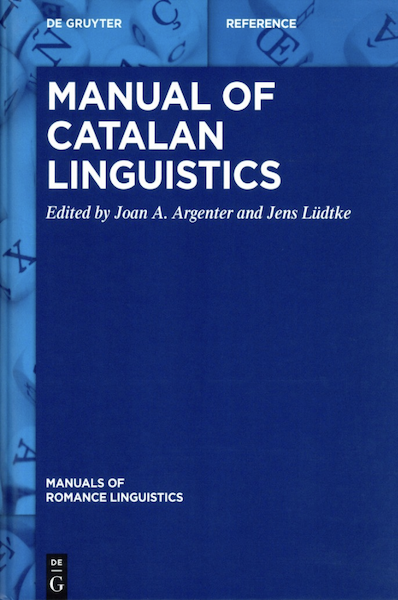
Autors:
Gemma Rigau / Xavier Villalba / Jaume Mateu (entre d'altres)
Títol:
Manual of Catalan LinguisticsEditorial: De Gruyter
Data de publicació: Juny de 2020
Més informacióThis manual is intended to fill a gap in the area of Romance studies. There is no introduction available so far that broadly covers the field of Catalan linguistics, neither in Catalan nor in any other language. The work deals with the language spoken in Catalonia and Andorra, the Balearic Islands, the region of Valencia, Northern Catalonia and the town of l'Alguer in Sardinia. Besides introducing the ideologies of language and nation and the history of Catalan linguistics, the manual is divided into separate parts embracing the description – grammar, lexicon, variation and varieties – and the history of the language since the early medieval period to the present day. It also covers its current social and political situation in the new local and global contexts. The main emphasis is placed on modern Catalan.
The manual is designed as a companion for students of Catalan, while also introducing specialists of other languages into this field, in particular scholars of Romance languages.
20 juny, 2015
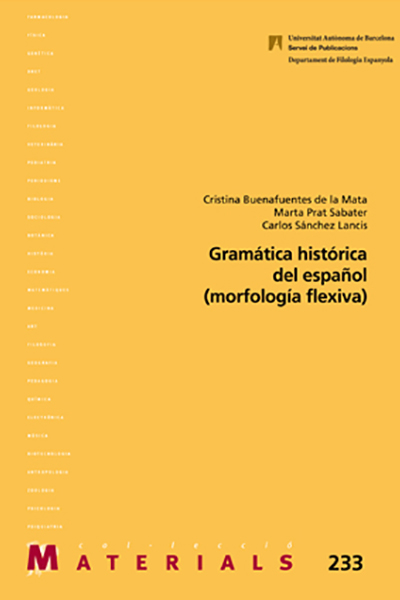
Autors:
Carlos Sánchez Lancis, Cristina Buenafuentes de la Mata, Marta Prat Sabater
Títol:
Gramática histórica del español (morfología flexiva)Editorial: Universitat Autònoma de Barcelona, Servei de Publicacions
Col·lecció: Materials #233Data de publicació: 2015
Pàgines: 82ISBN13: 978-84-490-4422-9
Més informacióRessenya: Este cuaderno, titulado Gramática histórica del español (morfología flexiva), ofrece una visión general de la evolución de las distintas clases de palabras desde el latín hasta el español actual, haciendo hincapié en su morfología flexiva. Se combinan los materiales de apoyo (ejemplos, resúmenes, esquemas, gráficos, etc.), que ayudan a la comprensión de las explicaciones teóricas, con la propuesta de ejercicios que facilitan su asimilación.
Este material docente está diseñado para favorecer el seguimiento de la asignatura Gramática histórica del español avanzada del Grado de Lengua y Literatura Españolas, asignatura de segundo ciclo dentro del Departamento de Filología Española de la Facultad de Filosofía y Letras de la Universitat Autònoma de Barcelona.
Títols de la col·lecció / Also in this series:
20 juny, 1999
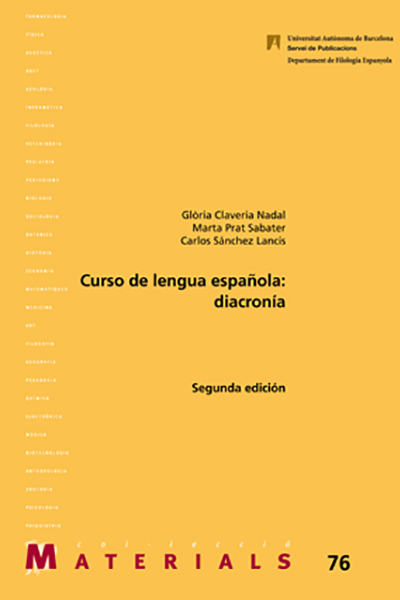
Autors:
Gloria Claveria Nadal, Marta Prat Sabater, Carlos Sánchez Lancis
Títol:
Curso de lengua española: diacroníaEditorial: Universitat Autònoma de Barcelona, Servei de Publicacions
Col·lecció: Materials #76Data de publicació: 1999
Pàgines: 100ISBN13: 84-490-1658-4
Més informacióEste Curso de lengua española: diacronía presenta una introducción básica tanto para el estudio de la lingüística histórica en general como de la historia de la lengua y la gramática histórica del español en particular, principalmente en lo que se refiere a la evolución de su sistema fónico.
Se combinan las guías de ayuda para la explicación de las clases con la realización de ejercicios prácticos que facilitan su mejor comprensión. Este material docente permite seguir con mayor fluidez las explicaciones dadas en la asignatura de Lengua Española IV de la titulación de Filología Hispánica, dentro del Departamento de Filología Española de la Facultad de Filosofía . y Letras de la Universitat Autònoma de Barcelona.
Títols de la col·lecció / Also in this series:
8 abril, 2025
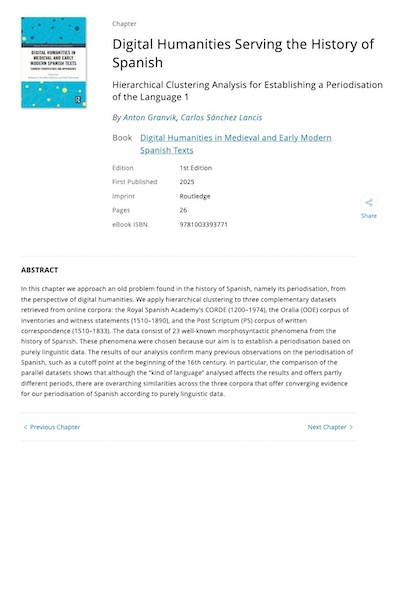
Autors:
Granvik, Anton & Carlos Sánchez Lancis
Títol:
Digital Humanities serving the history of Spanish: hierarchical clustering analysis for establishing a periodization of the languageEditorial: Routledge
Data de publicació: 31-03-2025
Pàgines: 26ISBN13: 978-1-003-39377-1
Més informacióIn this chapter we approach an old problem found in the history of Spanish, namely its periodisation, from the perspective of digital humanities. We apply hierarchical clustering to three complementary datasets retrieved from online corpora: the Royal Spanish Academy's CORDE (1200–1974), the Oralia (ODE) corpus of inventories and witness statements (1510–1890), and the Post Scriptum (PS) corpus of written correspondence (1510–1833). The data consist of 23 well-known morphosyntactic phenomena from the history of Spanish. These phenomena were chosen because our aim is to establish a periodisation based on purely linguistic data. The results of our analysis confirm many previous observations on the periodisation of Spanish, such as a cutoff point at the beginning of the 16th century. In particular, the comparison of the parallel datasets shows that although the “kind of language” analysed affects the results and offers partly different periods, there are overarching similarities across the three corpora that offer converging evidence for our periodisation of Spanish according to purely linguistic data.



